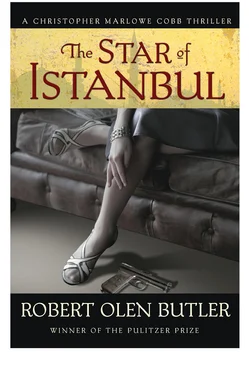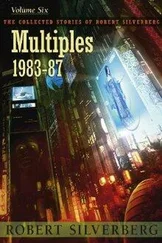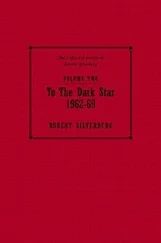Selene looked too and we paused for the man, who gave us a quick, dismissive glance, easily accepting that he should go before us. His uniform was the German feldgrau —field gray, but with tones of green to blend into a battlefield — and his shoulder boards each had two pips. A full colonel. He also wore a Pickelhaube, the ridiculous, black, polished-leather spiked helmet that sat up over the ears protecting very little except the feelings of inadequacy of the officer beneath it. Did I feel Selene tense up a bit beside me? These were her guys. These were the guys I had to deal with.
The tin-pot Hun did a sharp right face in front of us and a guy was coming out of the hotel with the same beefy face but wearing a three-piece tweed suit and a matching Alpine hat. The man in the suit stiffened and paused and shot a crisp salute at the uniform, who saluted in return. The one disappeared into the hotel and the other turned to his right, heading up the Rue des Petits-Champs. The colonel was returning from a night on duty or a high-level early staff meeting, perhaps at the German embassy just up the street. The lesser officer in mufti was off duty. The Huns were dressing down to civies to keep a low public profile. Which meant privately they were working hard to control the Turkish government.
Selene and I followed the colonel into the marble entrance foyer and we checked in at the front desk, which was off to one side. I half expected further instructions to be waiting for me, but there was nothing. We went up the short staircase at the back of the foyer and stepped into the vast central space that lifted your chest like a cathedral or a major mosque. This was the grand Kubbeli Salon, with six domes floating fifty feet overhead, though secular domes, profusions of circular glass panes — the Western quarter’s architectural nod to the religious big business down the hill and across the Bosporus on the Golden Triangle of Stamboul. At the north end of the space were double doors. We passed through them and stood before a mahogany electric elevator car whose portal was an abrupt departure from all the neoclassicism: its cast-iron gate was an open-web facade of violent art nouveau curves.
The door clanged behind us. The operator opened the circuit, and we rose, the tops of the six domes soon appearing below us, becoming the faux floor of an atrium rimmed by four levels of rooms, the passageways balustraded by more art nouveau iron. We arrived at the top and we stood before her room, mine just a little farther along.
Our journey from London was finally over. We were now left with the need simply to wait — helplessly to wait — for the Pasha’s people, whoever they might be, to contact us.
And though I suspected it never seriously entered either of our minds to wait together, Selene felt obliged to apologize, which was a surprising thing to me, a tender, almost sentimental gesture on her part, it seemed: “I’m sorry,” she said. “I need to be alone now.”
“I understand,” I said. “But you’re not facing all this alone. I’m still with you.”
This animated her eyes, very briefly, very subtly — I could not even say how it was I knew that she’d come alive behind them — and she turned from me without a touch and she opened her door and disappeared.
I stood there quietly, not walking away to my own room, not even turning, not moving in the slightest. I remained like this for a long while, long enough for the elevator to hum and jangle its way down to the ground floor and then come all the way up again. I heard the elevator door open at the center of the atrium, and that made me turn, as I expected it to be the gold-buttoned boys with our luggage. But it was the German colonel.
I straightened, my limbs surging with restrained energy: a reflex of preparation for a possible danger. Foolish, under the circumstances, though it more plausibly occurred to me, as he walked the thirty yards or so along the passageway toward me, that he might be my contact. He did not have to be a Turk, after all, my contact for this initial meeting. Indeed, I was hoping the approaching officer was the one. We’d speak German. I could be very convincing in German. A Turk would expect the Islam scholar from Britain to speak Turkish. I still didn’t have a plan to finesse that.
The colonel neared. His eyes held fast on the straight line to his room, which obviously was beyond me. And since I was close to Selene’s door, I was just outside of that immediate line of sight. He seemed not even to recognize my presence.
He passed.
I turned to watch him.
He went a couple of doors up the passageway and stopped and unlocked his room — still not looking my way — and he entered. The door clicked shut.
I knew to expect a large contingent of German staff officers at the Pera Palace.
Keep your friends close and your enemies closer.
I went to my room, which was two doors beyond the colonel’s, near the end of the hall.
Inside, the room was harmoniously eclectic: an Uşak rug of Persian palmettes and olive vines in gold and pale red; Byzantine medallioned brocade drapes; more nouveau cast iron in the headboard; and, yes, even a bit of Louis XVI neoclassicism in a mahogany wardrobe.
I parted the drapes, opened the French windows behind them, and stepped onto a balcony. The benign feeling I’d had at first seeing the city from a distance returned, this time from above: the wooden houses showing their red tile roofs; the high, tight, almost military stands of cypress; the Bosporus slashing blue across the middle distance; and the domes and minarets catching the morning sun in Stamboul across the way.
I leaned heavily against my balcony and turned my face south and west. A hundred and thirty miles away, the estimates made it fifty thousand dead — Turk, Brit, French — and plenty more mutilated, like the boys on the tram.
And thinking about the carnage made me jump a little when a heavy rap came from inside the room.
The door.
I turned, moved through the French windows, crossed the densely soft rug, not thinking, ready to be Brauer if I could. I would insist on German with a Turk. Deutschland über Allah .
But as I approached the door, I noticed something lying on the carpet before it. An envelope had been slipped through the crack.
I bent to it. Picked it up.
Whoever it was didn’t seem to be hanging around.
I opened the door and stepped out.
The passageway was empty in all directions.
I stepped back into the room and closed the door.
I opened the envelope. The note was handwritten in English: Turn left outside hotel, immediate right. Third cross street is Çatmali Mektep. Coffeehouse with yellow dog.
This didn’t sound like the Germans. But if it was Metcalf’s man in Istanbul and he knew to leave a message for me in Walter Brauer’s room, then they’d watched me arrive at the hotel. And they were expecting me to have killed him.
I stashed my bags and threaded the holster onto my belt so the pistol rode in the small of my back. I’d asked for a left-handed holster, though I was right-handed, so I could draw from back there. I’d gotten the idea to hide a weapon in this place before — a hunting knife, in Mexico — to good effect. This would be the place for my Mauser in Istanbul. I figured I’d more likely have to draw with stealth than with speed.
The passageway was clear and I went five levels down the heavily carpeted staircase and into the Kubbeli, where I walked casually, keeping an eye on anyone keeping an eye on me. I was okay.
The immediate right turn at the corner of the hotel led me along the western edge of the public gardens, where the Judas trees were blooming in pale purple. The fronting shops mostly catered to foreigners, but the block before Çatmali Mektep seemed to be blending back toward the Turks, though well-to-do ones. The hattery had fezes in the window. A barber in white was working on a man in a suit, but in a chair on the sidewalk. The coffeehouse was indeed a house, not the working-class java fiends’ usual set up of a raggedy divan and a few chairs under a wooden lean-to. But the yellow dog was mangy and indolent, one of the rare survivors of Istanbul’s canine holocaust the previous year, when tens of thousands of feral dogs, for which the city was infamous, had been rounded up and dumped on an island in the Sea of Marmara to starve. This yellow mutt had been wise to endear himself at an establishment for influential Turks.
Читать дальше












